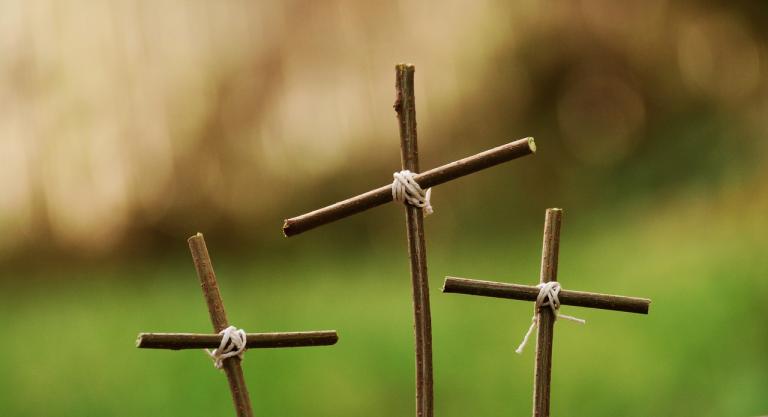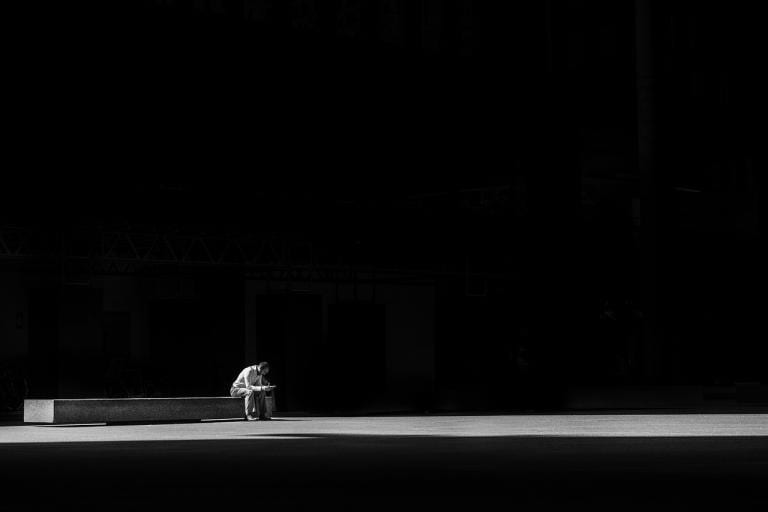3vil5triker had a comment on yesterday’s BenOp post that prompted a rather longer and more involved response than I like to leave in the combox. Basically, it concerns the question of whether the Benedict Option shelters individuals – or whether it’s basically a way of trying to prop up a doomed ideology.
“What we need to accept is that there is nothing inherently shameful about a Christian needing this kind of shelter.”
About the Christian? No. About Christianity? Yes.
Because, lets be clear on what we’re talking about: the people can survive and thrive just fine, its the ideology that needs sheltering and protecting from the outside world.
The crux of the matter, I think, is the question of whether American Christianity is an ideology or a culture.
Most of us believe that cultures have a fundamental value, that peoples have a right to their distinct cultural practices and suffer a kind of collective trauma if their way of life is violently suppressed or uprooted. So, for example, currently in Canada there have been a number of different lawsuits and controversies that basically concern the loss of cultural traditions among First Nations people. There’s a recognition that when indigenous kids were taken from their families and placed in residential schools, or when wards of the state were removed from their First Nations communities and placed with white families (usually under the assumption that white families could provide them with a superior upbringing), that the loss of their cultural heritage was a grave injustice against these kids.
We don’t generally make the same assumption about ideologies, mostly because we think that ideologies can be wrong, and when they are they can have a deeply destructive effect on culture. Ideologies can develop in ways that are more artificial: cultures follow a kind of organic development and they generally have to be resilient and accommodating enough to benefit a majority of the people who practice them. Ideologies on the other hand are notoriously fractious, they’re usually developed by intellectual elites in a vacuum, and they don’t have to be subject to the same kinds of social compromise that result when large groups of people attempt to actually put a cultural belief into practice. That’s why you can end up with authoritarian ideologies that function through violent imposition on their host peoples.
The difficulty is that in practice it’s never possible to completely separate culture and ideology, so you end up with situations where cultural destruction becomes justified under the guise of ideological correction. If you look at the history of cultural imperialism, the claim that the dominant culture is merely suppressing the false beliefs of the subordinate culture is very common, because if you say that what you’re trying to do is spread truth, correct errors and address endemic evils within a population then it gives a veneer of altruism and righteousness to forms of cultural destruction.
So, to me it just seems really obvious that traditional American Christianity is a cultural phenomenon, and that one of the big difficulties that confronts America is that you have several different cultures inhabiting the same political space. Canada has a similar problem with the question of distinct society in Quebec and sovereignty rights for First Nations – but the difference is that in the Canadian case you’re looking at groups that are ethnically and linguistically differentiated whereas in the US you have multiple distinct cultures that grew up more or less side by side, that all derive from the same Modern, European, English-speaking, Protestant cultural matrix, all of which take the American Constitution as a foundational statement of identity. It’s kind of like you have several different offspring from the main-line of American civilization all vying for the right to be the heirs to the Kingdom.
And it means that you actually do have a literal culture war going on where the two most prominent American cultures are trying to destroy one another. And in the midst of that you have people who are afraid that their traditional way of life, their belief structure, and their cultural values are going to be eradicated.
Until recently, those on the Blue side of the American political spectrum have generally not felt this kind of fear: progressive/liberal Americans have, for the most part, felt themselves to be on the “right side of history.” They’ve generally enjoyed both dominance and ascendance, and have seen Red victories as temporary set-backs rather than existential threats. As is usual in war, the consistent legal and political gains of the past few decades have produced a sense of moral and cultural superiority among left-leaning Americans. Most seem to see “Bible belt” American Christianity as fundamentally illegitimate and treat it with a kind of contempt that would seem inexcusable if it were being directed against any other cultural or religious group.
Now, I’m not at all convinced that Red American culture is actually anywhere near the point where it can only survive through ghettoization. I think the last election pretty clearly demonstrated that Blue America has been frankly overconfident in the manifestness of its progressive destiny. But be that as it may, I think there are a lot of American Christians who are justly terrified because they do not see Trump as their political messiah, but rather as their political Judas. They are deeply aware that this is a man who appeared on the cover of Playboy, that his “family values” are non-existent, that he was pro-choice right up to the minute that it was expedient for him to become pro-life, that his theology is shallow at best, and that he’s a New Yorker whose real cultural allegiance is to Wall Street. Basically, they see him as a Manchurian candidate who espouses Red beliefs in public, but who is actually interested in advancing a globalist, corporate, secular agenda that is deeply at odds with Christian culture.
For anyone who sees it that way, yeah, I could see how they would think it was time to run for the hills, hole up and preserve their cultural traditions as well as they can. And I don’t think that’s illegitimate. Cultures have a right to self-preservation just as individuals do, and forming tight-knit communities, distinct from the mainstream, is one of the oldest and most time-tested methods by which embattled or marginalized groups survive. And if Christian America has to become a distinct entity, no longer meaningfully represented by Republicanism, then marginalization may well be at hand.
It’s not just a matter of preserving an ideology, it’s a matter of preserving an entire way of life: a way of life that includes a distinctive worldview (as all traditions do), but also a particular set of cultural practices that are becoming increasingly difficult to sustain in the face of postmodern Western culture’s rising global dominance. And even though there are definitely aspects of American Christianity that I find offensive to my own sensibilities, if I’m going to be consistent in holding that cultural diversity is a good and beautiful thing then I must desire the preservation of that particular culture as well – and if BenOp communities turn out to be part of the means by which its preservation is assured, then I think they are worth defending.
Image credit: pixabay
Stay in touch! Like Catholic Authenticity on Facebook:













